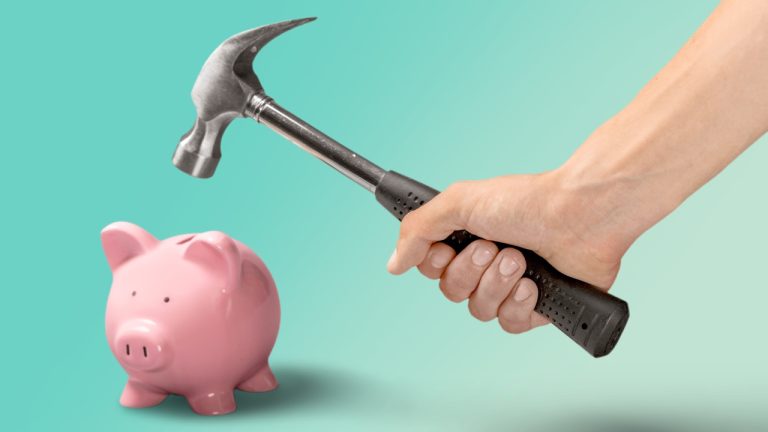
After the recent bank collapses in the U.S., a number of people believe that more failures are coming following the Federal Reserve’s increase of the benchmark interest rate by 25 basis points (bps). American journalist Charles Gasparino insists that Wall Street’s “low-rate” junkies are ignoring the U.S. banking crisis. Quill Intelligence CEO Danielle DiMartino Booth asserts that the banking industry is facing problems that “nobody wants to call a banking crisis.”
Ignoring the U.S. Bank Crisis
There have been numerous opinions and statements from financial experts and officials following the failures of three major U.S. banks. All four major benchmark stock indexes ended the day in the green on Friday after the Federal Reserve raised the federal funds rate by 25 basis points two days earlier. Journalist, radio host, and financial commentator Charles Gasparino wrote an opinion editorial over the weekend that claims the “modern-day stock market is an addict.” Gasparino believes that higher rates are “painfully exposing” a “rot inside the banking system.”
He adds that commercial bankers took “wild gambles,” and the failures of Silicon Valley Bank and Signature Bank highlight the issue. “There will be others, as many as two dozen, I am told,” Gasparino explains. “All have balance sheets remarkably similar to SVB and Signature. If things continue to go south, they are ready to fold, too, guaranteeing a steep recession.” Coincidently, a paper published on March 13 by researchers at New York University shows that U.S. banks had unrealized losses of $1.7 trillion in Dec. 2022.
The reporter’s opinion editorial, published by the New York Post, also mentions First Republic Bank, and he insists that First Republic “made some of the same horrible portfolio choices as SVB.” Gasparino doesn’t believe people should “trust the addicts trading stocks.” Gasparino compares the recent stock market rally on Thursday and Friday to the “stupefied giddiness of a junkie who just got his fix whenever he hears lower rates are in the offing.” While traders may be wishing for lower rates, Fed chair Jerome Powell recently stressed that “rate cuts are not in our base case,” and he insisted that “inflation remains too high.”
Author and CEO of Quill Intelligence, Danielle DiMartino Booth, envisions more bank failures to come as well. Booth discussed the subject with Kitco News lead anchor Michelle Makori, and she mentioned the issues surrounding the commercial bank First Republic. Booth noted that “we have not seen the biggest banks step up,” and many of these troubled banks are “sitting in no man’s land.” Further, Booth claims a precedent has been set after the Federal Reserve, Treasury, and Federal Deposit Insurance Corporation (FDIC) bailed out SVB and Signature.
“The precedent has been set, and it cannot be unset,” Booth told Makori. “As regulators, it’s not your job to pick winners and losers, but that’s the corner the [U.S. government] backed themselves into when they backed all of the uninsured deposits of Signature and SVB. We’re in the middle of a banking crisis that nobody wants to call a banking crisis,” Booth concluded.
What do you think needs to be done to prevent further banking crises in the U.S.? Let us know what you think about this subject in the comments section below.
#Economics, #Assets, #Bailouts, #BalanceSheets, #BankCollapses, #BankCrisis, #BankFailures, #BankIssues, #Banking, #Banks, #CharlesGasparino, #CommercialBanks, #Credit, #DanielleDiMartinoBooth, #Debt, #Deposits, #Economics, #Economy, #Failures, #FederalReserve, #Finance, #FinancialCrisis, #Inflation, #InterestRates, #Investments, #Investors, #Lending, #Liabilities, #Losses, #MichelleMakori, #Portfolio, #Profits, #QuillIntelligence, #Recession, #Regulation, #Regulations, #Risk, #Stability, #StockMarket, #Trading, #WallStreet